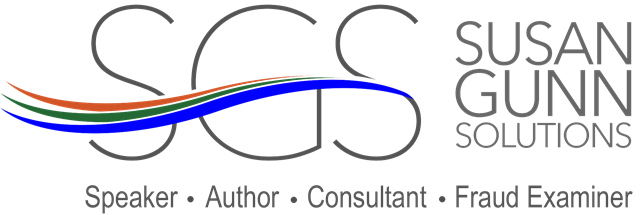In 2022, I recorded a podcast about Todd and Julie Chrisley, the reality TV stars who were convicted of a sweeping range of financial crimes, including bank fraud, wire fraud, tax evasion, and obstruction of justice. They had defrauded banks out of over $30 million, lived lavishly off that deception, and then filed for bankruptcy—all while hiding income from the IRS. Todd was sentenced to 12 years. Julie to 7. It was a rare and meaningful moment of accountability. And then—just like that—it was undone.
Yesterday, President Donald Trump pardoned their sentences. No clear reason. No formal White House statement. Just another high-profile act of absolution extended to individuals whose crimes were extensive, deliberate, and damaging—not just to “the system,” but to the people working in it to uphold justice.
I’m a Certified Fraud Examiner. I specialize in uncovering embezzlement within dental and healthcare practices, compiling evidence that is then handed off to the FBI, State Attorney’s Offices, or other law enforcement agencies for further investigation and prosecution. I know the weight of that work—the time, the documentation, the emotional toll it takes on everyone involved. This is not theoretical for me; it’s personal and professional. So when a federal jury delivers a conviction after years of careful investigation, it’s not just a win—it’s a validation of process, ethics, and the very foundation of justice.
This pardon? It erases that meaning.
It sends a message that if you’re wealthy, connected, and happen to have a public platform, the rules don’t apply to you. That accountability is optional. That greed, when wrapped in charm and celebrity, can be excused.
That should disturb every single person who believes in law, ethics, and fairness.
The Real Cost of Fraud
Financial crimes aren’t victimless. When someone takes out millions in fraudulent loans and fails to pay them back, it affects banks, investors, business owners, and yes—taxpayers. When people hide income to avoid taxes, the rest of us carry that burden. Fraudulent behavior like the Chrisleys’ distorts trust in our financial institutions and encourages a culture of deceit.
They didn’t simply make a mistake. They built an entire lifestyle on intentional deception—and even after earning millions from their show, they kept manipulating the system. The federal jury saw the evidence and rendered their verdict. That verdict wasn’t just about punishing them; it was about setting a precedent. Saying clearly: This is not okay.
What does it say now?
I Believe in Second Chances—But Also in Justice
I believe people can change. I’ve supported countless clients in repairing their systems after betrayal and moving forward. But second chances come after accountability. After restitution. After remorse. Not instead of them.
What I’ve seen time and again in my work is this: the people who steal from practices, nonprofits, and small businesses often feel entitled. They rationalize their choices. They hide behind hardship or ego. The Chrisleys did exactly that—and now, instead of paying restitution, they walk away.
When we reward deception with freedom, we devalue integrity.
The Bigger Picture
This pardon is about more than the Chrisleys. It’s about the troubling trend of high-profile individuals escaping consequences while ordinary people are held to account. It’s about investigators being told their work doesn’t matter. It’s about the erosion of trust in a system that’s already fragile.
It’s about the growing message that character no longer counts—only money and media presence do.
If you’re in my line of work—or care about ethics at all—this moment stings. It’s a slap in the face to every accountant, auditor, financial investigator, and practice owner who believes that systems matter. That rules matter. That justice matters.
We Have to Speak Up
I know many people will shrug this off as “just another celebrity pardon.” But I won’t. Because this isn’t just about a headline—it’s about the values we choose to protect.
If you’d like to hear the original podcast I recorded about this case back in 2022, you can find it here:
🎧 In the Embezzlement News: The Chrisleys – Do They Know Best?
And if you care about restoring faith in accountability—even when it’s hard—then I hope you’ll stay in the conversation with me.
Because silence doesn’t solve anything.

